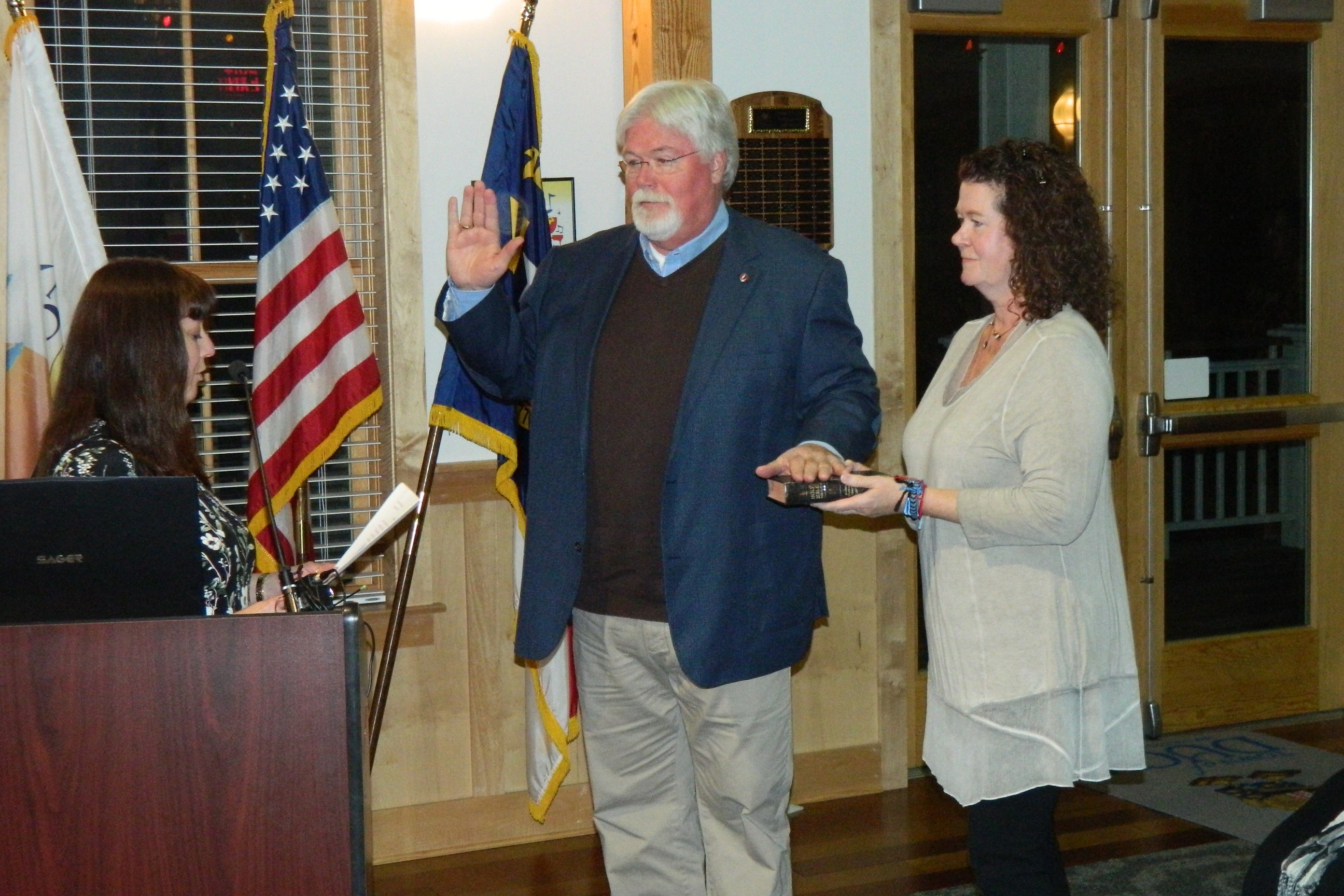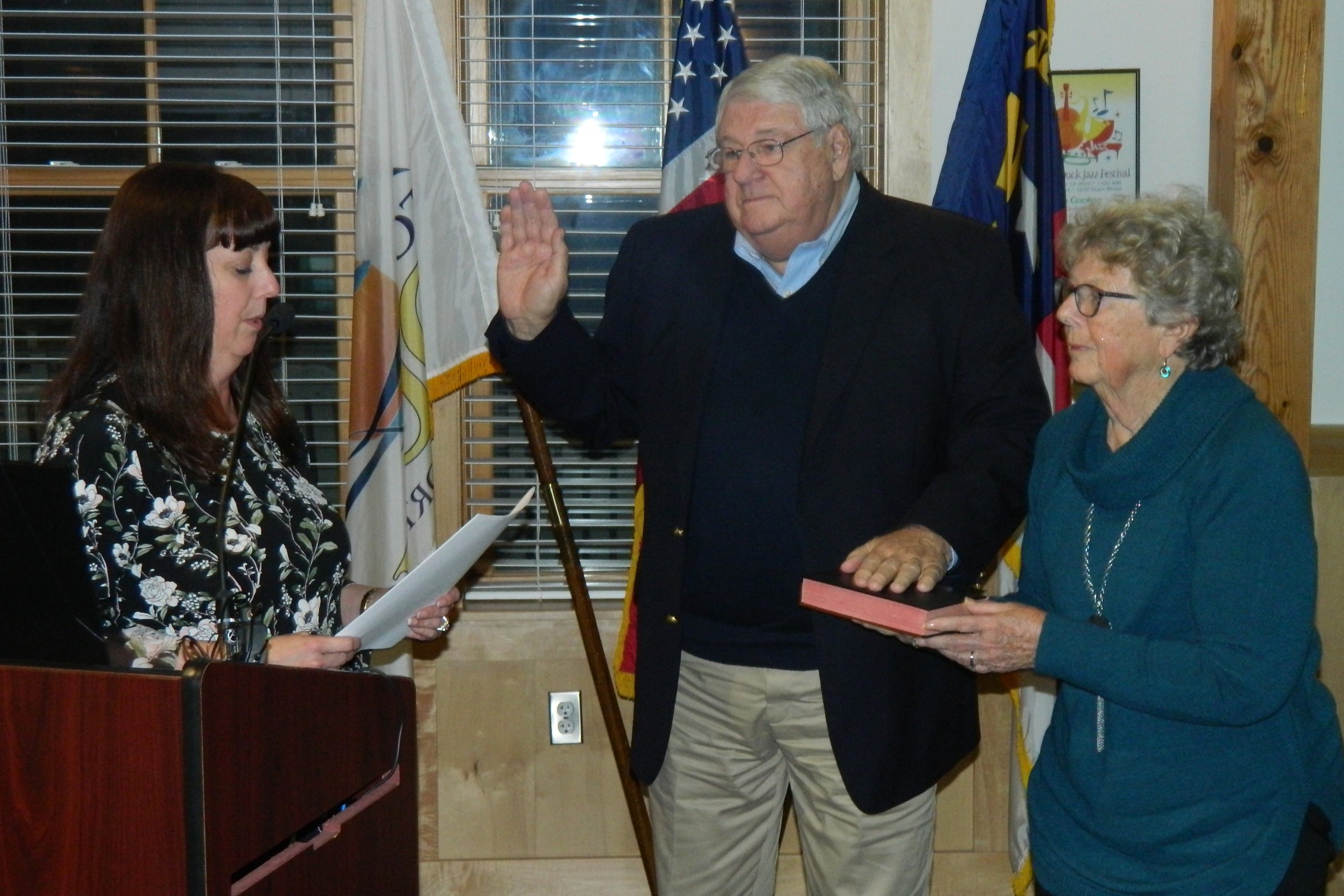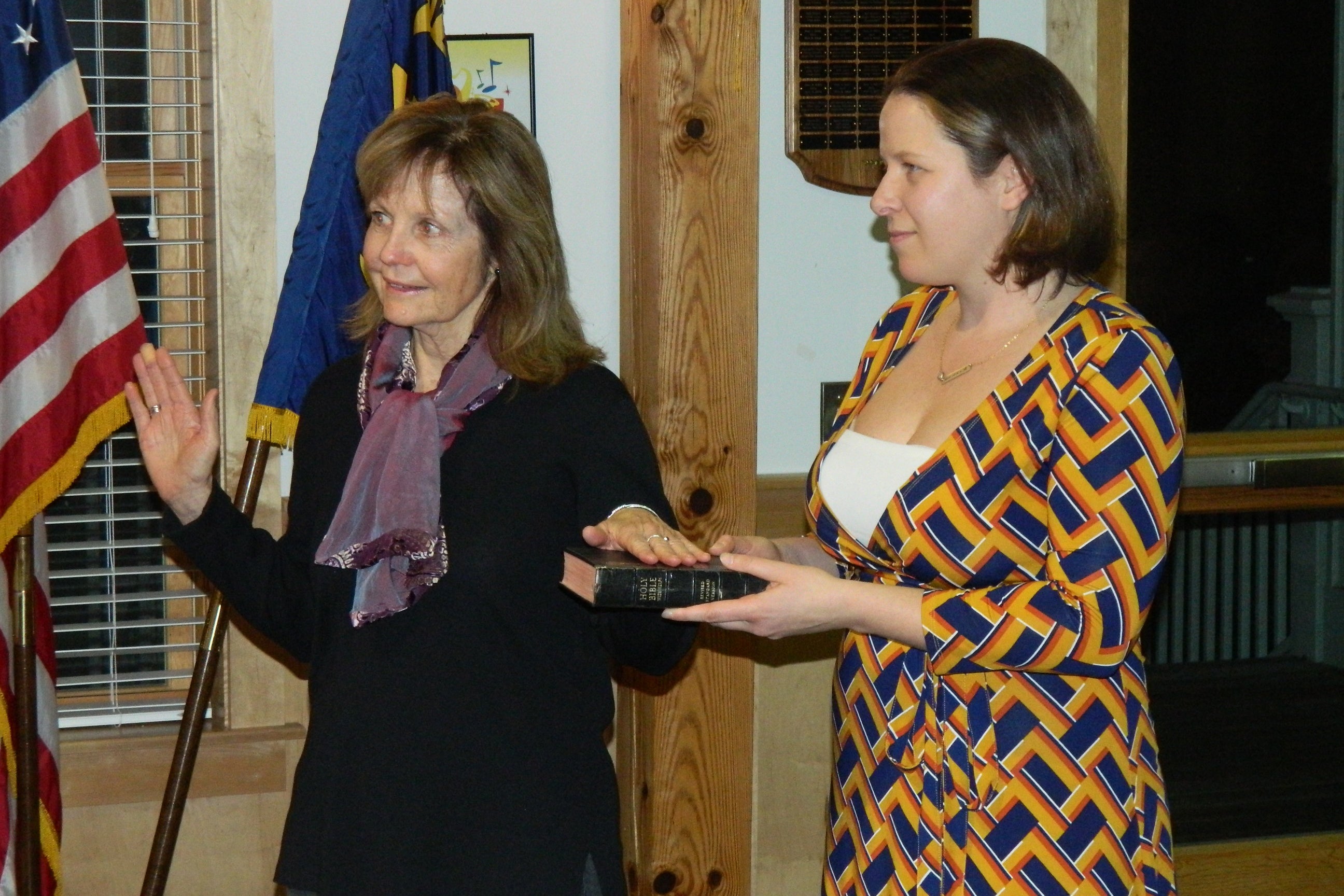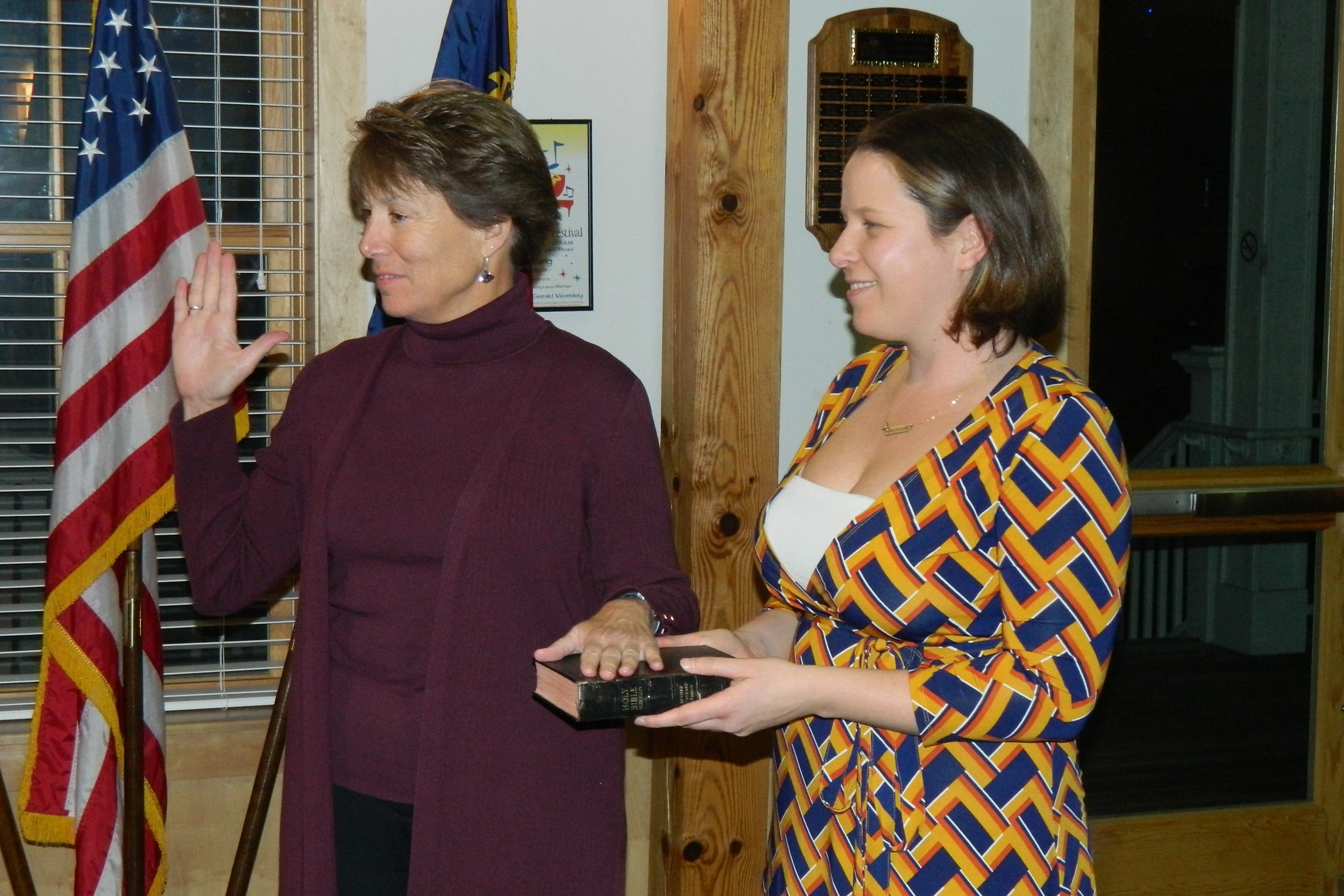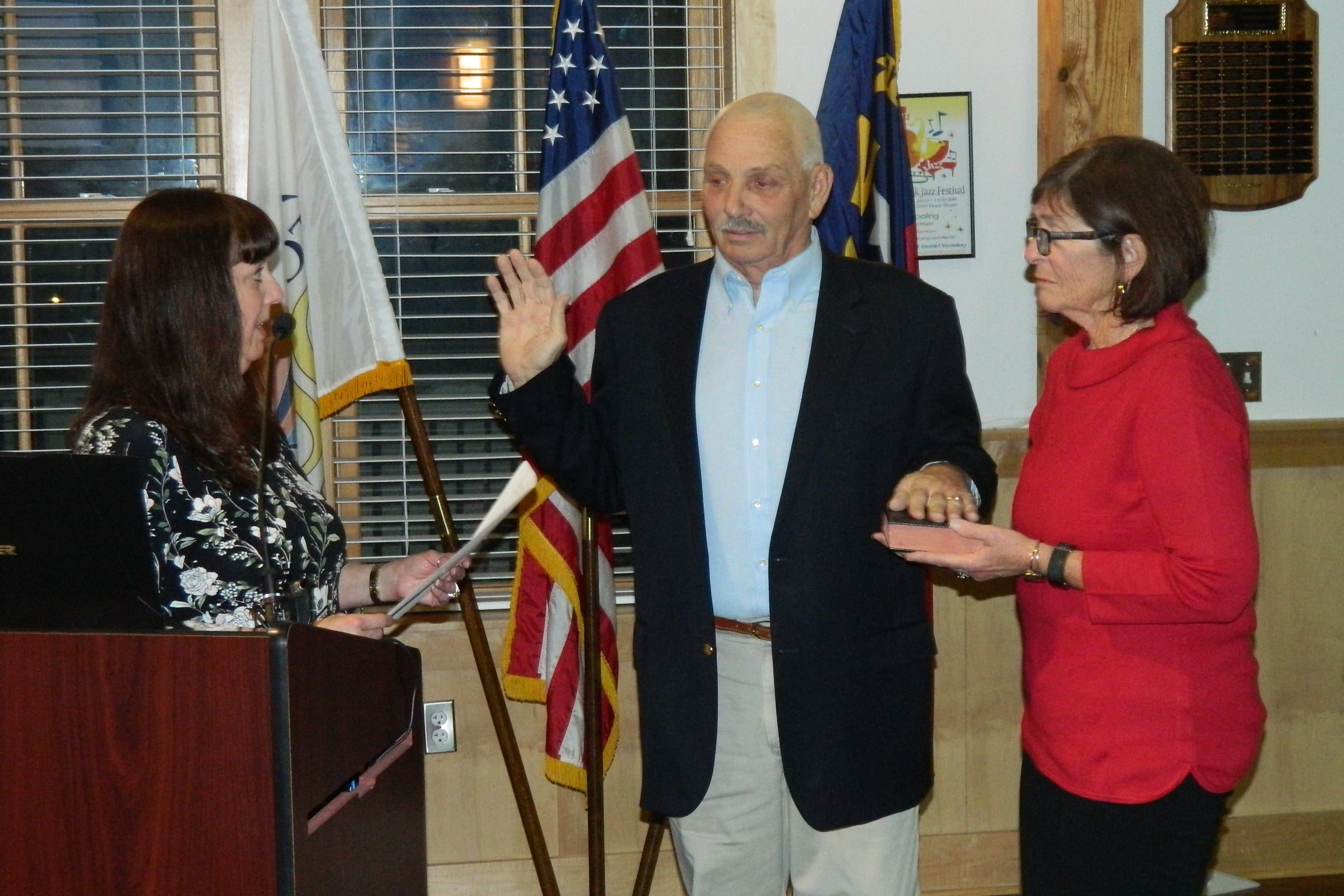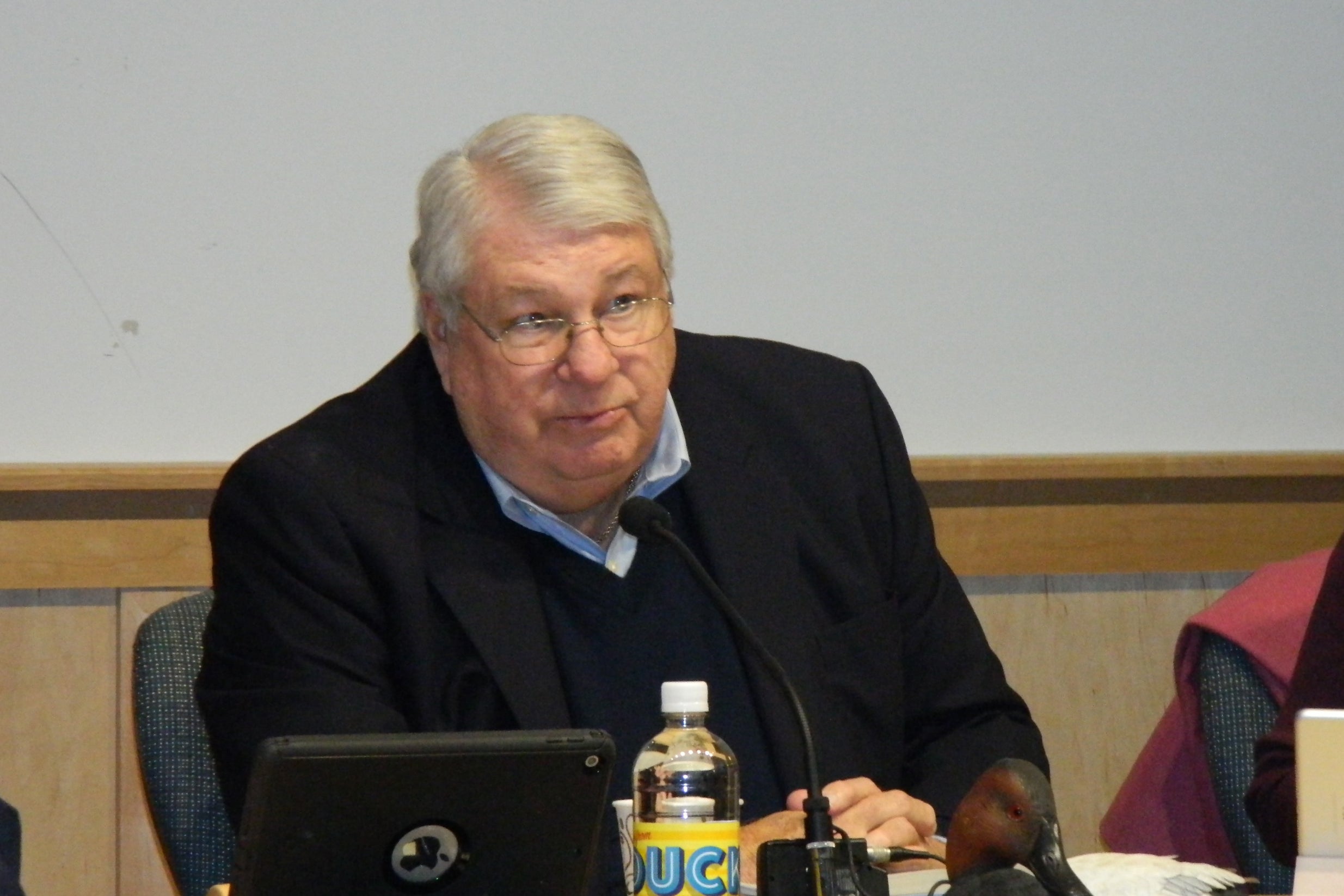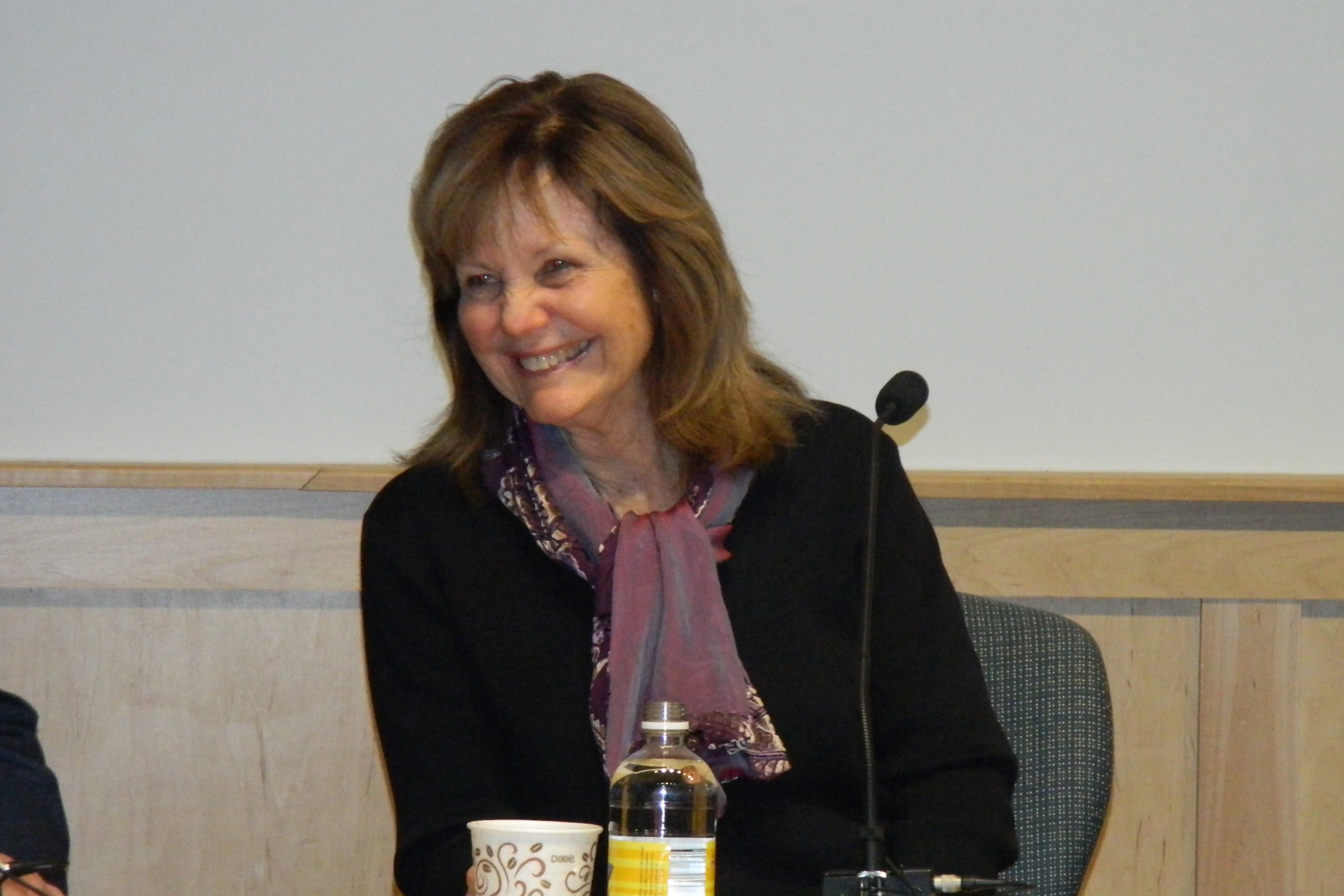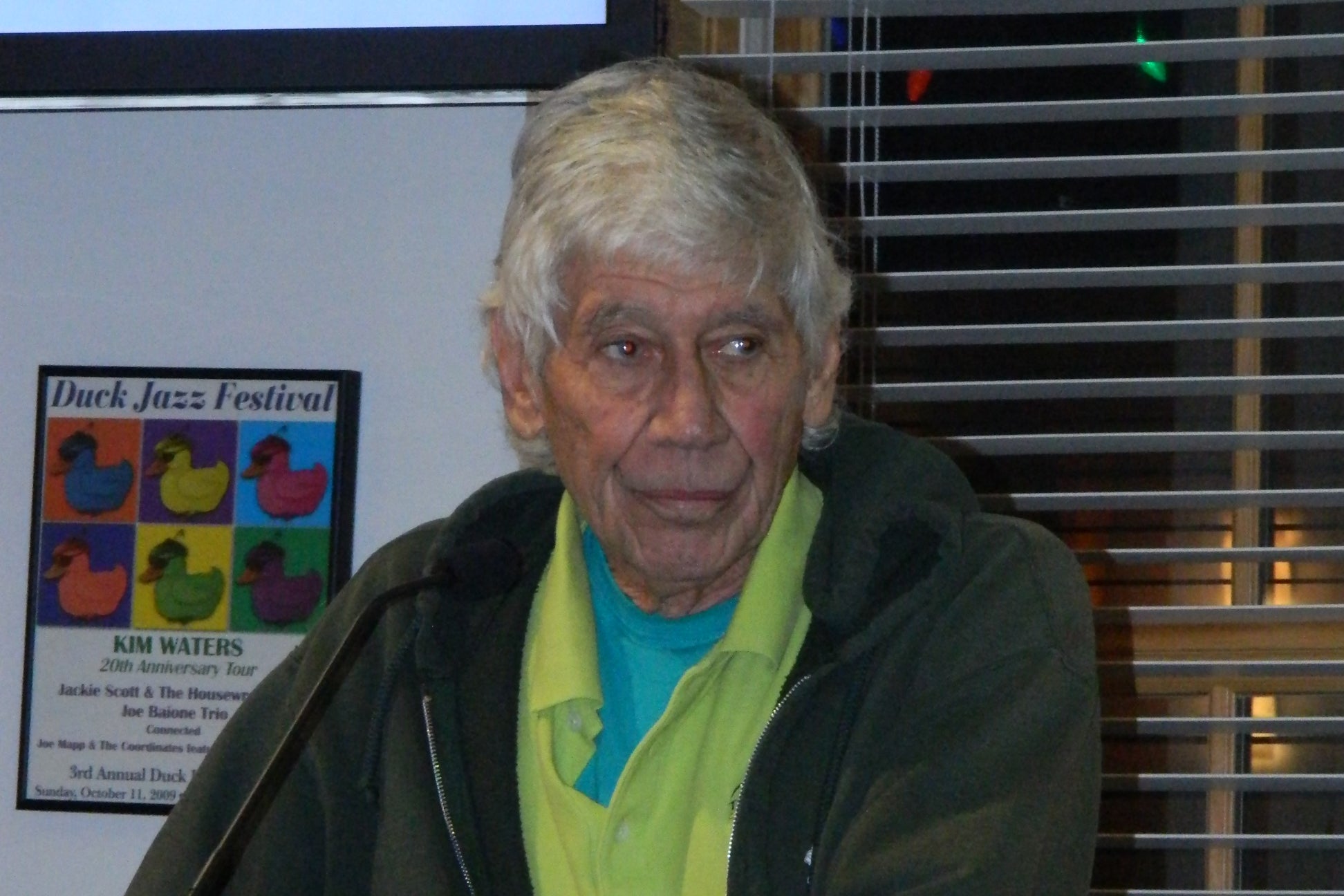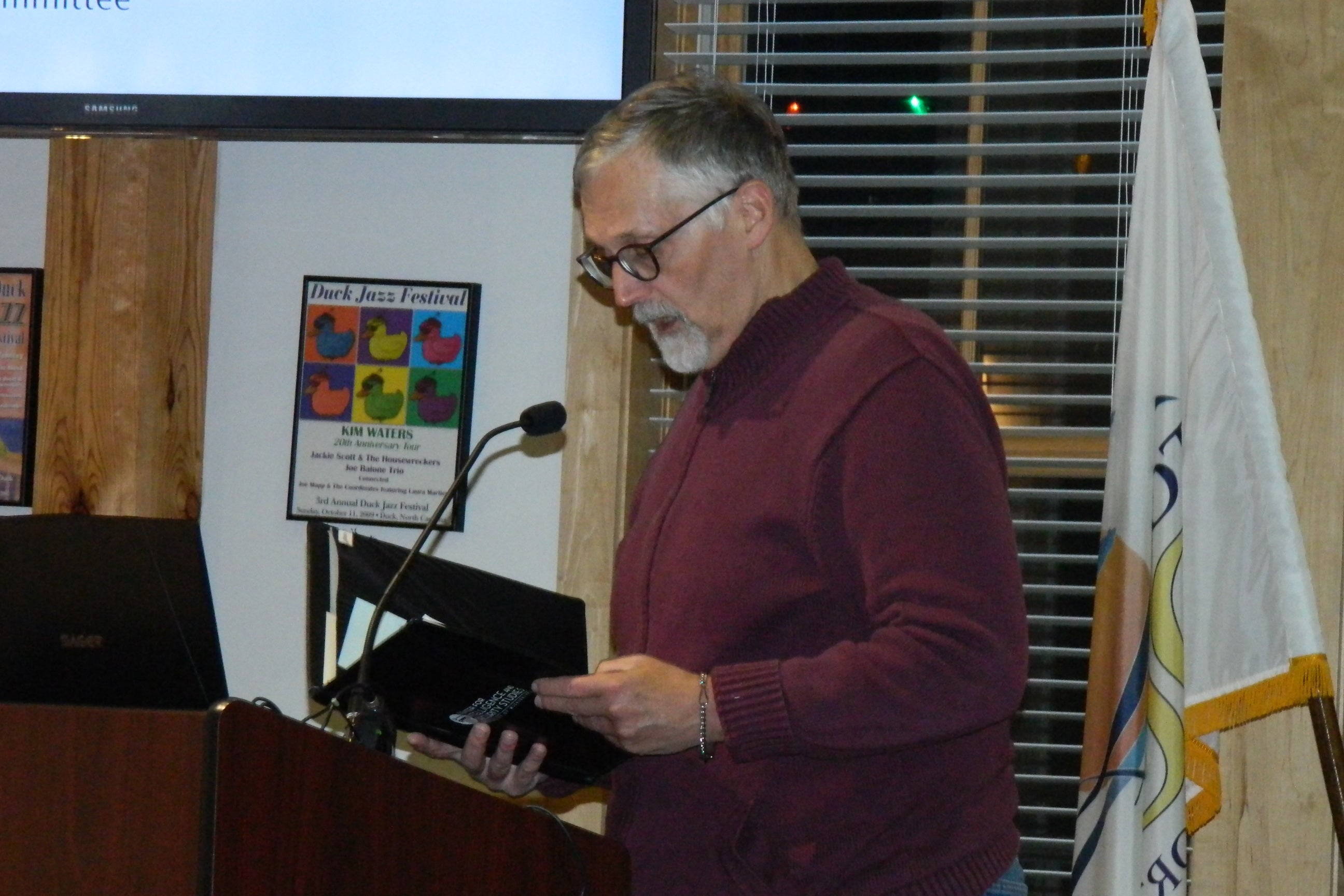New Duck Town Council seated
Published 12:01 pm Thursday, December 12, 2019
Duck Town Council actions during its Wednesday, December 4 regular session meeting included seating two new members, establishing review standards for Duck’s Village Commercial Development Option, amending guidelines for gravel parking surfaces on commercial properties and setting a 2020 council meeting date schedule.
With a near-capacity crowd filling the Paul F. Keller Meeting Hall in Duck, citizens watched as newcomers Rob Mooney and Sandy Whitman joined veterans Nancy Caviness, Don Kingston and Monica Thibodeau for the biennial oath of office to all five Town Council members.
Then, without opposition, Kingston and Thibodeau were re-elected mayor and mayor pro tempore, respectively, in council’s first action for the night, which was followed with resolutions honoring and thanking former council members Chuck Burdick and Jon Britt for their service to the Town of Duck.
Burdick, a full-time resident of Duck since 2000 who serves as the town’s contract postmaster, was elected to the Town Council in December 2009, re-elected in November 2011 and has served as a council member from December 2011 through November 2019.
Britt, the owner and operator of Nor’Banks Sailing, has been a Duck resident since birth and a community leader all his life. A member of the first Duck Planning Board in 2003, Britt was vice chairman from 2005 through 2007 and then chairman from 2008 through July 2012 when he was selected to serve a one-year Town Council term. He was then elected to a full Town Council term in November 2013 and has been a council member through November 2019. He is also the longest serving volunteer firefighter in the Duck Fire Department.
The next action for the new council was a look at guidelines for implementing the Village Commercial Development Option as a special exception.
Under the current VCDO ordinance, Town Council has been able to exercise considerable discretion when ruling on development applications. In an effort to move from a limited number of non-specific and somewhat subjective criteria to a more objective list of guidelines, the Planning Board wrestled with how to maintain the general intent of the VCDO: that any proposed development should be consistent with or enhance the character of Duck Village.
After considering a number of options, which at one time included a detailed scoring system that was seen as too cumbersome and eventually discarded, Planning Board members developed a proposed a set of design criteria guidelines they felt would help quantify whether or not a proposal is consistent with the character of Duck Village.
According to community development director Joe Heard, Planning Board members decided that using proposed criteria as guidelines Town Council would still have great flexibility in determining a proposal’s compatibility with the Village Commercial district and applicants would have a better idea of what characteristics council would be considering during the VCDO application process.
After looking at the proposal during its November 6 meeting, Duck Town Council members voted to have the Planning Board discuss and reconsider a section that prohibited using VCDO requests to remedy existing violations.
At its next meeting, on November 13, Duck Planning Board did consider the request and voted unanimously (5-0) to resubmit its original recommendation without any changes to the previously submitted text amendment ordinance. It was noted that board members inserted the restriction during an early stage of the ordinance discussion and still consider it an important standard the will discourage business owners from seeking forgiveness for violations through the VCDO process.
During Wednesday night’s discussion, Kingston advised that while there were some concerns with parts of the ordinance at the November meeting, it was also sent back to the Planning Board because only four council members were present and no matter what came back, a new council would be looking at it.
“I think the Planning Board has done a very good job,” Kingston added.
Council then gave the recommendations a unanimous 5-0 vote of approval.
Another unanimous approval was for the use of pervious or semi-pervious parking surface materials on commercial properties.
Changes to Section 156 of the Town Code include excluding gravel driveways, parking aisles and parking spaces from lot coverage calculations similar to the current exemption for residential parking spaces and, since commercial parking areas are subject to more intensive use by larger vehicles, a set of general commercial parking standards were established intentionally flexible to allow an applicant’s engineer to design a suitable solution for any specific site. To prevent rocks and gravel from migrating onto any adjoining sidewalk, bike lane or roadway, an asphalt or concrete apron is required at a driveway entrance.
In response to public concerns that the change might open the door for developers to gravel the entire property just to get in more parking, Heard explained that setback and septic requirements would limit some of what developers can do. He went on to say that commercial parking guidelines also come into play that impose limits on how much gravel could cover.
Parking also appeared to be a major concern for Tommy Karole, who asked council during his public comment times to intervene in an administrative approval for a bicycle rental shop at 1566 Duck Road. According to Karole, there are not enough parking spaces at the former seafood location and the Paper Canoe restaurant next door.
Council does not respond to public comments, but Heard was asked to explain some of the details behind Duck Cycle’s application for 1566 Duck Road. An earlier request to include an ice cream parlor was withdrawn, making it an administrative review. Heard added after the meeting that the town is limited in its ability to restrict an approved use when applicants comply with all existing guidelines.
With little discussion, council authorized a public hearing for Ordinance 19-09, which will consolidate several town firearms standards to bring Duck into compliance with current state law, asked Town Manager Christopher Layton to solicit applications in order to fill a Planning Board vacancy created by Whitman’s election to Town Council and made the following Council Member appointments:
– Monica Thibodeau to Government Access Channel Committee
– Sandy Whitman as Planning Board – Council Liaison
– Don Kingston and Monica Thibodeau as Town Check Signatory
– Rob Mooney to Albemarle RPO Rural Transportation Advisory Committee
It was also noted that even though Burdick is no longer a Town Council member, he is still the current Duck representative on the Dare County Tourism Board with one year left on his term. Because the enabling state legislation for the board requires appointees serve out their term and state law supersedes any local regulations, the town’s legal counsel has advised that Duck should not submit any replacement names.
Layton also pointed out that one other election impact was to the makeup of the Land Use Plan Advisory Committee. Specifically, Britt was appointed as a Town Council representative and Whitman was the Planning Board representative. Because Land Use Plan work is close to being half done, Layton recommended no changes to the current make-up of the committee other than to request Planning Board recommend one of its members to be added to the committee.
Council also heard without taking action a Southern Shores Library Committee presentation by Michael Fletcher on the results from a recent survey conducted regarding any interest or need for a library branch located in Southern Shores.
According to Fletcher, more than 80 percent of the 407 survey respondents provided a favorable response, along with 120 individual comments. Most study participants included residents of Southern Shores, Kitty Hawk, Duck, Martin’s Point and non-resident Dare County homeowners who live more than five miles from an existing library.
Fletcher concluded his presentation saying the committee is looking at several potential sites and hopes to make an announcement about a possible location and cost analysis soon.
One of the final actions for the night was approval of a 2020 Town Council meeting date schedule. Eliminating the January 1 meeting, council will meet at 7 p.m. January 15 with the remainder of the 2020 calendar at follows:
– January 24 (Winter Celebration Party)
– February 5 (Regular Session Meeting)
– February 19 and 20 (Retreat)
– March 4 (Regular Session Meeting)
– March 18 (Mid-Month Meeting)
– April 1 (Regular Session Meeting)
– April 15 (Mid-Month Meeting)
– May 6 (Regular Session Meeting)
– May 20 (Mid-Month Meeting)
– June 3 (Regular Session Meeting)
– June 17 (Mid-Month Meeting)
– July 1 (Regular Session Meeting)
– July 15 (Mid-Month Meeting)
– August 5 (Regular Session Meeting)
– August 19 (Mid-Month Meeting)
– September 2 (Regular Session Meeting)
– September 16 (Mid-Month Meeting)
– October 7 (Regular Session Meeting)
– October 21 (Mid-Month Meeting)
– November 4 (Regular Session Meeting)
– November 18 (Mid-Month Meeting)
– December 2 (Regular Session Meeting)
– December 16 (Mid-Month Meeting)
Regular session meetings begin at 7 p.m., mid-month meetings are at 1 p.m. and the February retreat dates are all day meetings.
Duck Town Council then recessed until a 10 a.m. December 10 ethics training session.
READ ABOUT MORE NEWS AND EVENTS HERE.
RECENT HEADLINES:
Currituck commissioners amend UDO, vote on island development
Nags Head Septic Health Initiative renamed to honor Todd Krafft


